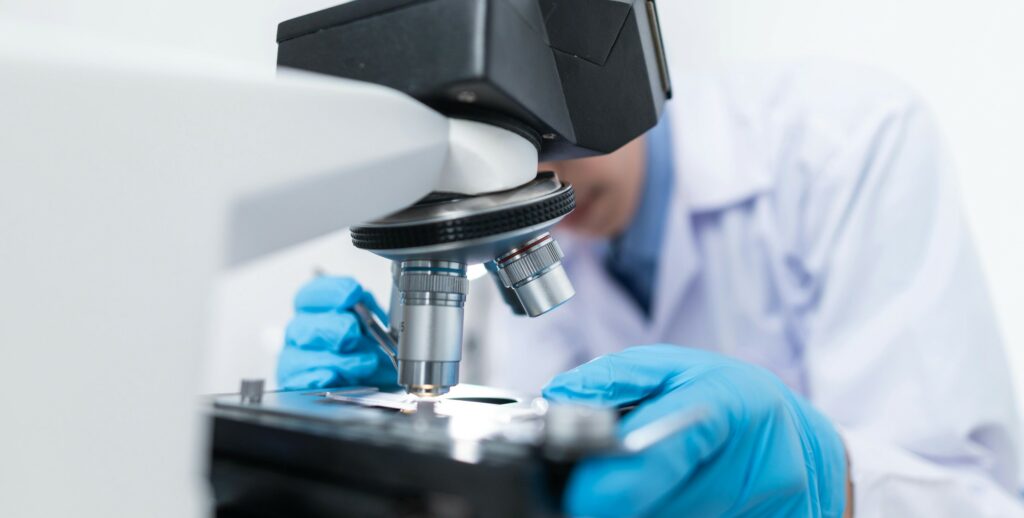Planning for a pregnancy and expanding your family is an exciting time but also a time when it is crucial to ensure you are in good health. Getting tested for STIs is important for an expecting mother to protect both herself and her baby. Even if you are in a long-term mutually monogamous relationship, STIs contracted years ago can affect your pregnancy.
How can STIs during pregnancy affect mother and baby?
STI can have an incredibly damaging effect on a pregnancy. Some STIs can cause an infection in the pelvis or uterus, leading to anything from premature birth to miscarriage.
Here is a list of some of the STIs that can affect a pregnancy.
Chlamydia
Chlamydia is one of the most common STIs, yet it often goes undetected because it usually has no symptoms. If an expecting mother contracts Chlamydia during pregnancy, she may experience pelvic inflammatory disease (PID), which increases her risk of premature labour and delivery, miscarriage, or ectopic pregnancy. Chlamydia can also be passed to the baby while in utero, causing conjunctivitis or pneumonia after birth.
Gonorrhoea
Gonorrhoea can increase the risk of premature birth and delivery, miscarriage, or ectopic pregnancy in expecting mothers. If passed to the baby while in the womb, it can lead to conjunctivitis or pneumonia after birth. Therefore, it is important for expecting mothers to get tested for STIs before becoming pregnant so they can receive any necessary treatment and protect both themselves and their unborn child from potential harm.
HIV
When a mother has HIV, her baby can contract the virus before birth through the placenta or during delivery if the baby comes in contact with infected bodily fluids. Breastfeeding can also transmit the virus. Being HIV-positive during pregnancy is associated with increased rates of preterm delivery, preeclampsia, and gestational diabetes mellitus (GDM).
Herpes
There are two types of Herpes Simplex Virus, HSV 1 (Oral Herpes) and HSV 2 (Genital Herpes). Although a newborn may be infected with either type, most cases are caused by HSV 2. The virus can be transmitted to the infant during pregnancy or after birth, but the risk of transmission is greatest around the time of delivery. If a woman contracts HSV 2 during the third trimester, it can greatly harm the new-born. This is called Neonatal Herpes and can cause severe issues like brain damage, blindness, and even death of the baby.
Hepatitis B
The American College of Obstetricians and Gynaecologists states that if a pregnant woman has Hepatitis B, she will likely pass the virus to her baby with a 90% chance of transmission. During pregnancy, the mother may experience Hepatitis flares caused by the Hepatitis B virus due to immunological changes. In babies, the virus can lead to preterm labour, breathing problems, digestive issues, low birth weight, and developmental delays.
Hepatitis C
Approximately 4 out of 100 women who have tested positive for Hepatitis C may transmit the virus to their child during pregnancy. The majority of pregnancy-related issues caused by Hepatitis C occur due to advanced HCV-related cirrhosis. These issues may involve preterm birth, low birth weight, preeclampsia, and haemorrhaging.
Human papillomavirus (HPV)
Experiencing HPV during pregnancy has been linked to negative outcomes like premature birth, miscarriage, abnormalities in the placenta, preterm prelabour rupture of membranes (PPROM), and fetal growth abnormalities. Additionally, if a mother has Genital Warts that are large enough to block the birth canal, delivery may become more complicated. It is also possible for the virus to spread through skin contact during birth or through breastfeeding if the mother is infected.
Syphilis
Congenital Syphilis is a term used to describe the Syphilis infection that is transmitted from a mother to her baby during pregnancy. The bacterium called Treponema pallidum causes this infection, and it can pass through the placenta. Unfortunately, this condition may result in many health problems for the baby, such as low birth weight, premature birth, stillbirth, and even death. Moreover, it may lead to various complications like deformed bones, enlarged liver or spleen, meningitis, severe anaemia, brain and nerve problems, jaundice, and rashes.
Trichomonas
If you contract Trichomonas during pregnancy, it can increase the chance of your water breaking and your baby being born prematurely. Your baby may also be born with low birth weight, appear lethargic, and experience difficulty breathing if he or she also contracts Trichomonas.
How to reduce the risk of STIs during pregnancy
Abstaining from sexual activities is the failsafe method of preventing STIs. However, if you are sexually active, using condoms helps to prevent STI transmission. It is also important that both you and your partner are tested for STIs. Being in a long-term, mutually monogamous relationship with both people having recently tested negative for a wide range of STIs is a safe bet.
It’s also important to speak with your partner consistently about any concerns you may have about sexually transmitted infections. If either one of you has any symptoms, you should get tested as soon as possible.
Speak to us in confidence
Thinking of having a baby? Consider getting tested for STIs before embarking on your pregnancy journey.
Speak to one of our highly trained Sexual Health Advisors today by calling the number above. Or, you can use our live online web chat for more information about our pre-pregnancy testing options.
With Better2Know, you can find a clinic near you and receive confidential STI testing. Protect your sexual health and make an appointment online or using the phone number above.
Sources
[1] MAYOCLINIC.ORG: STDs and Pregnancy: Get the facts
[2] CDC.GOV: STDs during Pregnancy – CDC Fact Sheet
[3] HEALTH.GOV.AU: Routine Maternal Health Tests





